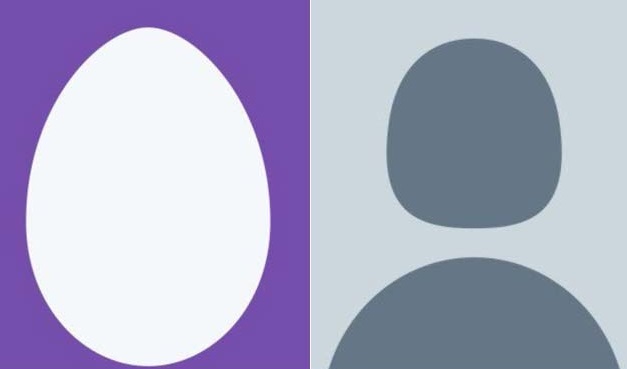Twitter has dropped the egg that functions as its default profile picture over fears that it has become associated with online abuse.

“We’ve noticed patterns of behaviour with accounts that are created only to harass others – often they don’t take the time to personalise their accounts,” Twitter said.
“This has created an association between the default egg profile photo and negative behaviour, which isn’t fair to people who are still new to Twitter and haven’t yet personalised their profile photo.”
The egg, which has been in use since 2010, is being replaced by what Twitter describes as a neutral silhouette, which resembles a grey, androgynous human image with rounded shoulders and a slightly square-shaped head.
“The new default image feels more like an empty state or placeholder, and we hope it encourages people to upload images that express themselves,” said Twitter.
The social media service has faced accusations in the past that it does not do enough to tackle abuse.
However, earlier this month, it announced users would be able to block abusive accounts that use the egg avatar.
Attention is likely to focus on the unusual new image and Twitter admitted its designers had struggled to achieve a figure that did not look too much like a man.
“We reviewed many variations of our figure, altering both the head and shoulders to feel more inclusive to all genders,” said the firm.
“When the shoulders were wider, the image felt overly masculine, so we decreased the width of the shoulders and adjusted the height of the figure. As a result of these iterations, we ended with a more gender-balanced figure.”
Twitter recently revealed it had shut down more than 375,000 accounts in the second half of 2016 because of abuse or hate-filled content.
Read more here
